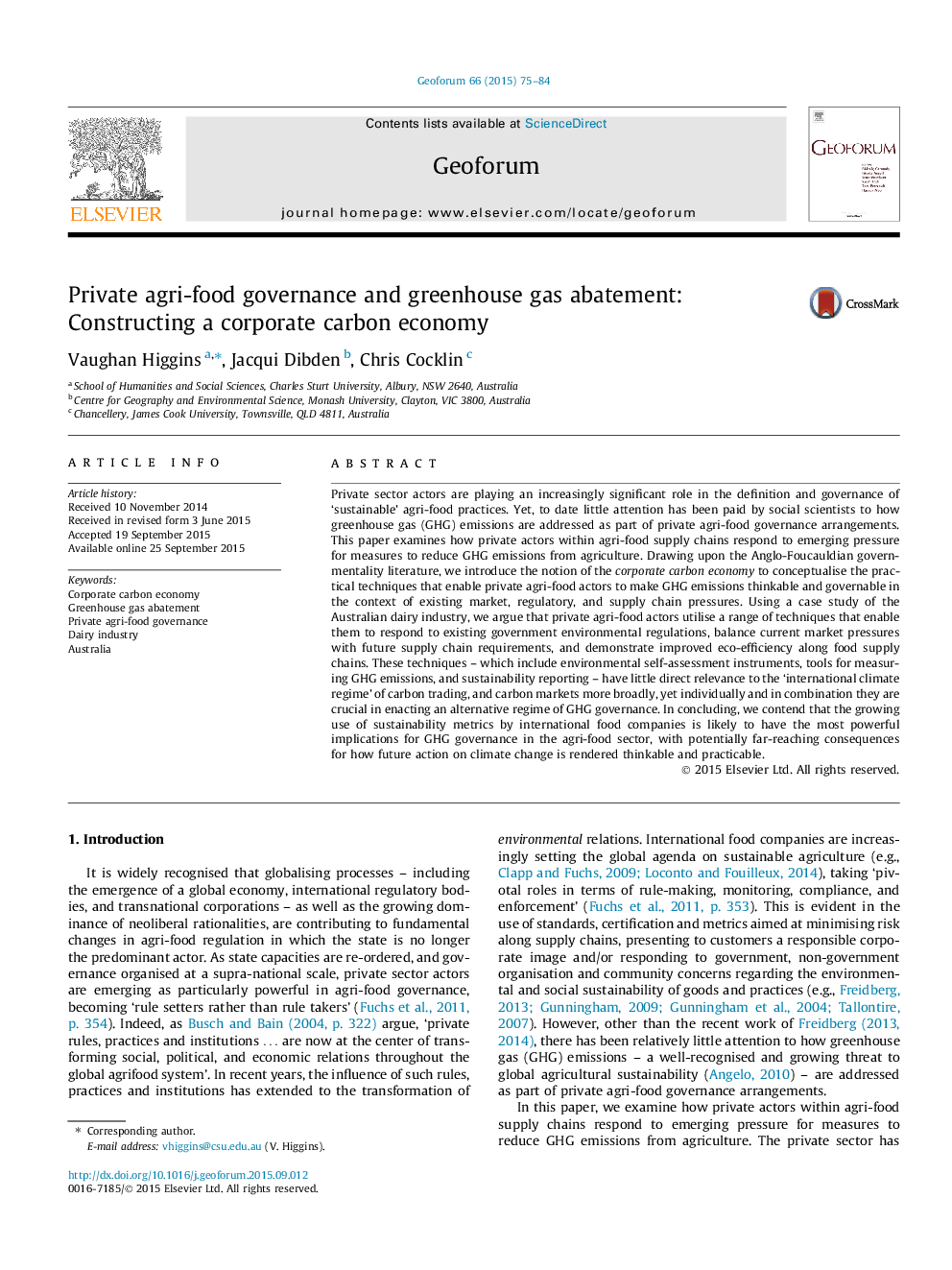| کد مقاله | کد نشریه | سال انتشار | مقاله انگلیسی | نسخه تمام متن |
|---|---|---|---|---|
| 5073597 | 1477123 | 2015 | 10 صفحه PDF | دانلود رایگان |
- Private sector actors address GHG emissions in the context of existing pressures.
- These responses use techniques that have little direct relevance to carbon markets.
- Such techniques contribute to the construction of a corporate carbon economy.
- Corporate sustainability metrics will have an increasing influence on GHG abatement.
Private sector actors are playing an increasingly significant role in the definition and governance of 'sustainable' agri-food practices. Yet, to date little attention has been paid by social scientists to how greenhouse gas (GHG) emissions are addressed as part of private agri-food governance arrangements. This paper examines how private actors within agri-food supply chains respond to emerging pressure for measures to reduce GHG emissions from agriculture. Drawing upon the Anglo-Foucauldian governmentality literature, we introduce the notion of the corporate carbon economy to conceptualise the practical techniques that enable private agri-food actors to make GHG emissions thinkable and governable in the context of existing market, regulatory, and supply chain pressures. Using a case study of the Australian dairy industry, we argue that private agri-food actors utilise a range of techniques that enable them to respond to existing government environmental regulations, balance current market pressures with future supply chain requirements, and demonstrate improved eco-efficiency along food supply chains. These techniques - which include environmental self-assessment instruments, tools for measuring GHG emissions, and sustainability reporting - have little direct relevance to the 'international climate regime' of carbon trading, and carbon markets more broadly, yet individually and in combination they are crucial in enacting an alternative regime of GHG governance. In concluding, we contend that the growing use of sustainability metrics by international food companies is likely to have the most powerful implications for GHG governance in the agri-food sector, with potentially far-reaching consequences for how future action on climate change is rendered thinkable and practicable.
Journal: Geoforum - Volume 66, November 2015, Pages 75-84
